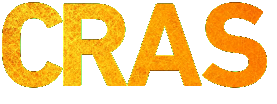CRAS 2024
The 13th edition of CRAS will take place at the University of Southern Denmark, in Odense, Denmark.
Surgical robotics is revolutionizing medical practices by enhancing precision and reducing invasiveness in surgeries. These advancements facilitate complex procedures, improve patient outcomes, and open new possibilities in autonomous surgery, expanding access to high-quality surgical care. The integration of AI and patient-specific data into robotic systems paves the way for personalized surgical experiences, while also presenting new challenges in training and ethical considerations.
In this 13th edition, communications are expected to relate advances in the following fields: Advanced Computer-Assisted Surgery Systems, Robotic Platforms and Systems for Surgical Procedures, Sensing and Imaging Technologies in Surgery, AI and Machine Learning Applications for Surgical Autonomation, Surgical Simulation and Training Tools.
Extended abstracts (2 pages) discussing new technologies for computer and robot assisted surgery are solicited.
CRAS 2024 is supported by the SDU robotics section.
CRAS 2024 Invited Speakers
tbd
Topic of Submission
- Machine learning and cognitive surgical robotics
- Registration, segmentation, modelling and data mining
- Synergies and clustering
- Motion compensation and active guidance
- Human-robot collaboration and shared control
- Workflow analysis and episode segmentation
- Surgical skill assessment
- Usability and user-acceptance
- Robotics in medical diagnosis
- Robotic systems in orthopedics
- Rehabilitation and assistive technologies
- Surgical training
- Tactile and haptic feedback
- Novel robotic hardware and sensors
- Variable stiffness robotic systems
- Interventional catheters
- Novel instruments
- Novel interfaces
- Standardization and regulation
- Surgery automation
- System integration
- Safety and dependability
- Robotics in Radiology
- Visionary works and roadmaps
Important dates
- Deadline for extended abstracts: May 15, 2024
- Notification of acceptance: June 30, 2024
- Deadline for final Paper Submission: August 15, 2024
- Deadline for early bird registration: July 31, 2024
- Regular registrations deadline: September 3, 2024
- Call for demos is open until: July 31, 2024
To propose a demonstration or to exhibit a product/prototype please email.
- Conference : September 11-13, 2024
Submission Guidelines
- 2 pages Extended Abstracts.
- Please follow the template for your final paper. A template can be downloaded here (docx or Latex).
- CRAS 2024 EasyChair Submissions through this link.
- A template for poster presentation can be downloaded here (pptx or Latex).
- A template for pitch presentation can be downloaded here (pptx).

